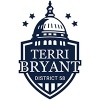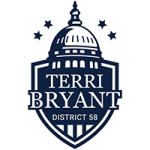This is my first official full week as the senator for the 58th District. Little did I know that this time would be spent combing through the numerous controversial bills that were ramrodded through the General Assembly at all hours of the day and night during last week’s lame-duck session spectacle. During the last-minute legislative push, several contentious bills were pushed through both chambers, including a major criminal justice reform bill that is essentially a backdoor “defund police” plan. Lawmakers also voted on major rewrites to existing laws, including the school code, labor laws, and an update to the recreational cannabis system.
Major Criminal Justice Rewrite Passes in Lame-Duck Session
Gov. J.B. Pritzker will soon have a number of new bills awaiting his signature after the condensed lame-duck session that ended last week. One of the most controversial bills that moved forward was a major criminal justice overhaul.
The bill started out as an amendment filed to House Bill 163, but after significant pushback from citizens, police, and prosecutors, the proposal was then moved to an amendment on House Bill 3653.
Some of the major components of the bill include:
- Eliminates cash bail completely by Jan. 1, 2023.
- Creates several new and potentially costly unfunded mandates, including new training requirements and body camera mandates.
- Bases preference for police department grants on compliance with body camera mandates.
- Requires suspects to be granted three phone calls within three hours of their arrest.
- Creates a task force to study the feasibility of removing qualified immunity from police officers.
Some of the most controversial aspects of the original bill were removed before voting, including stripping certain collective bargaining rights from police officers. While the original bill contained language that would have a lso stripped qualified immunity from officers, an important protection that many jobs have, the version that passed created a commission to study the idea, meaning it could still happen.
lso stripped qualified immunity from officers, an important protection that many jobs have, the version that passed created a commission to study the idea, meaning it could still happen.
The nearly 800-page final bill was filed in the early hours of Wednesday, January 13, and then called for a vote just after 4 a.m., leaving little time for lawmakers to read it before voting or even discussing. In addition, debate was limited, severely hindering the transparency of the process.
Opponents of the legislation note that it will increase costs to police departments, which could lead to fewer police officers on the street or increases to property taxes. The financial issues are why many police groups have referred to the legislation as a backdoor “defund the police” plan.
Many police officers, criminal justice advocates, and citizens are still working to stop the bill from being signed into law. You can voice your opposition as well by contacting the Governor’s office and urging him not to sign it here.
Numerous Controversial Proposals Rushed Forward During Lame-Duck Session
The lame-duck session saw a number of new and often controversial proposals rushed forward through the legislative process. In many cases, the bills involved hundreds of pages of language and were quickly filed as amendments before lawmakers were asked to vote “yes” or “no.” For a bit of perspective, a total of 6,386 pages of amendments were filed during the abbreviated session, which is more than the Bible, the Lord of the Rings Trilogy, and the entire Harry Potter series combined.
Besides House Bill 3653, the controversial criminal justice rewrite, other bills passed during the session include:
Senate Bill 1608, a proposal focused on racial economic equity, creates several new requirements, including diversity aspirational goals and a new Commission on Equity and Inclusion, along with the new Illinois Community Reinvestment Act (CRA) modeled after the federal CRA. It also requires each state agency and university to produce race and gender wage reports. While proponents say it will help minority businesses, opponents fear that the way it is written will interfere with existing procurement processes.
House Bill 2170 makes several changes to the Illinois School Code, including new requirements for curriculum, student assessments, accessibility, and more. The most controversial aspect, however, could be changes to the AIM HIGH scholarship program, which was designed to keep the state’s best and brightest students in Illinois for their college educations. Under the original layout of the program, state universities had to match AIM HIGH grants dollar-for-dollar. Under the revised rules in the bill, universities would only have to match either 60% of every dollar, or 20% of every dollar, depending on what percentage of the student body receives Pell Grants. This would mean that prospective students would likely receive less funding for college under the new rules.
student assessments, accessibility, and more. The most controversial aspect, however, could be changes to the AIM HIGH scholarship program, which was designed to keep the state’s best and brightest students in Illinois for their college educations. Under the original layout of the program, state universities had to match AIM HIGH grants dollar-for-dollar. Under the revised rules in the bill, universities would only have to match either 60% of every dollar, or 20% of every dollar, depending on what percentage of the student body receives Pell Grants. This would mean that prospective students would likely receive less funding for college under the new rules.
Senate Bill 1480, the Equal Pay Act, creates new standards for employers, including a prohibition on making advancement or termination decisions based on criminal records. Additionally, businesses with more than 100 employees would be required to obtain an “equal pay certificate” from the Department of Labor, by submitting an equal-pay compliance statement and a $150 fee.
Senate Bill 1792 makes changes to the marijuana legalization act to boost equity goals through the creation of the Cannabis Equity Commission. It creates a 36% APR cap on payday loans.
House Bill 1559 grants additional collective bargaining rights to the Chicago Teachers Union (CTU). The bargaining rights were originally restricted in the 1990s with the aim of reducing the number of strikes in Chicago.
House Bill 3360 grants prejudgment interest on certain lawsuits, a new concept for Illinois that could increase costs for businesses and encourage lawsuits.
House Bill 2451 grants a 3% compounded cost-of-living adjustment (COLA) for Chicago firefighter pensions. The pension fund for Chicago firefighters is currently only 18% funded.
Local Highlight
The Carbondale Public Library has announced that all library services are now available by appointment! Appointments can be made to use the computers, print documents, fax, scan, and more. Those interested in making an appointments should call 618-457-0354 and use extension 1. Curbside services are also still available for patrons.

